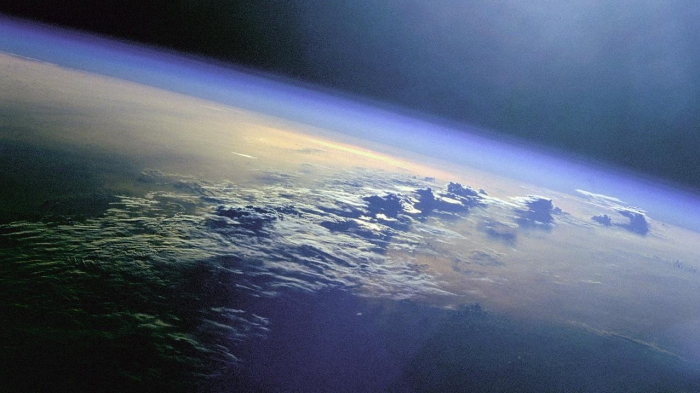His painstakingly conducted experiment calculated the density of Earth and thus the value of G, the universal gravitational constant first proposed by Isaac Newton in 1687. While mass and weight are not interchangeable (weight is variable, while mass is constant), Cavendish’s “weighing the world” experiment yielded a result of approximately 6 sextillion tons.
The total mass of Earth’s atmosphere is about 5.5 quadrillion tons, or roughly one millionth of Earth’s mass. Earth’s atmosphere extends from its ocean, land, and ice-covered surface outward into space, and its density is greatest close to the surface, because the gravitational attraction of the planet pulls the gases and aerosols (microscopic suspended particles of dust, soot, smoke, or chemicals) inward. Air is heavier (and thus easier to breathe) at sea level, since the air molecules sit close together, compressed by the weight of air from above. As elevation increases, however, air molecules spread farther apart, and the air becomes lighter.
Read the original article on britannica.com.
More about: Atmosphere
















































